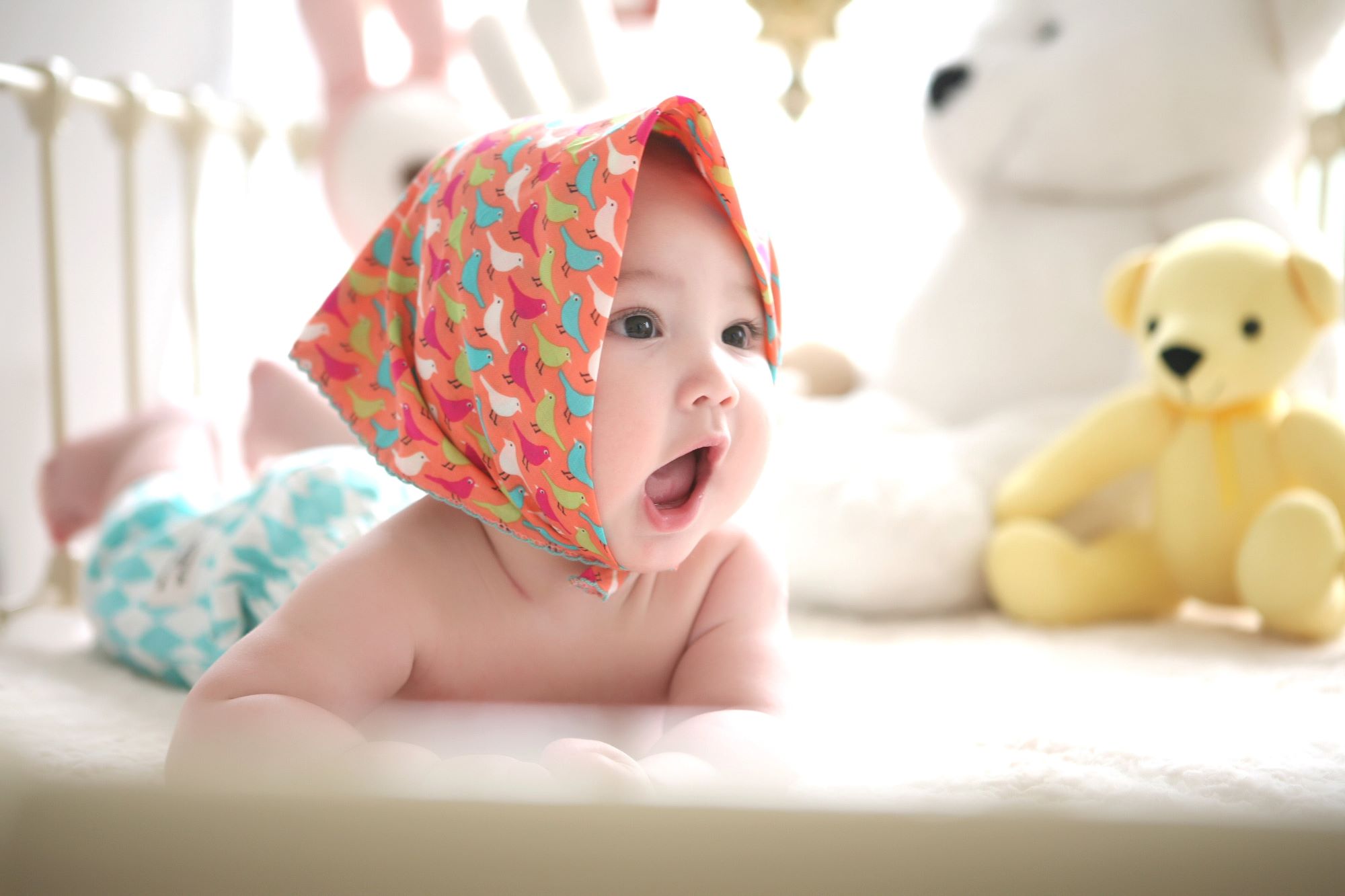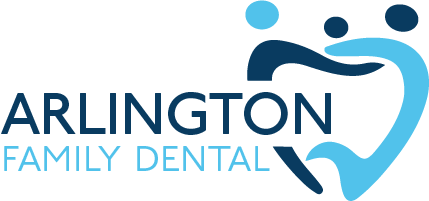
22 Feb When, Why, and How: Brushing Your Baby’s Teeth
The thought of brushing your little one’s teeth for the first time may seem intimidating. What if they don’t like it? What if they scream the whole time? Or, what if they swallow too much toothpaste and get sick? Is it even that important to brush their teeth anyway when the teeth will just fall out in a few years?
These are reasonable questions; many parents share the same concerns. Today, we’ll tackle the subject for all of you who have wondered: when, why, and how exactly should I go about brushing my child’s teeth for the first time?
When?
The recommendation is to brush your child’s teeth as soon as their first tooth comes in. Believe it or not, 80% don’t follow this guideline! Some parents may not start brushing their child’s teeth until the child is two or three years old. These statistics may come from a belief that baby teeth simply aren’t as important as adult teeth. They may stem from squirmy toddlers and screaming babies who simply won’t cooperate with well-meaning parents intent on proper dental care. Or, they may occur because of a lack of awareness that baby teeth also require significant upkeep to remain healthy and strong.
Whatever the source of the statistic, the fact remains that many aren’t brushing their child’s teeth as soon as they should be. As pediatrician Kimberly Giuliano explains, this leads to plaque and tartar buildup in kids just like it would in adults. We all know what plaque and tartar buildup means—cavities. What’s worse, the bacteria left unchecked will spread through a child’s body and can create inflammation throughout the body, not just in the mouth.
The moral of the story is to not be a part of that 80%. Instead, start brushing your child’s teeth as soon as the first one appears. However it might seem, baby teeth do play a crucial role in a child’s health and development. Improper care for them early on can leave a child with both present and future problems.
Why?
It’s a fair question: why go through the hassle of brushing a wriggling baby’s few teeth anyway, when they’re just going to fall out within a short handful of years? Writer Stephanie Watson addresses this by pointing out that, “Without a healthy set of baby teeth, your child will have trouble chewing, smiling, and speaking clearly.” Ultimately, failure to their teeth means leaving your child’s teeth defenseless against cavities. Cavities often bring pain and infection, which (as discussed earlier) can spread throughout the body. This decay can also impact the development of the child’s adult teeth. As the BabyCenter explains, “The primary teeth hold space for your child’s permanent teeth to erupt when it’s time. If baby teeth are missing, the gaps can cause other teeth to shift and cause their permanent teeth to come in crooked or trapped inside the jawbone.”
This list of complications isn’t exhaustive. As you can see, failure to brush your child’s teeth on time can seriously hinder proper growth and development. But by contrast, a proper oral care routine maintained from the beginning defends your child against inflammation, cavities, and disease. It teaches your child that dental hygiene is a normal, necessary part of life. It prepares them to accept the responsibility easily when their turn comes to take care of their own teeth.
How?
Okay, okay, you agree that it’s important to brush your baby’s primary teeth. We still need to know how. Thankfully, the American Dental Association provides guidelines.
Birth-1st Tooth
During this phase of your child’s growth, the ADA recommends that you “gently wipe baby’s gums with a clean, damp, soft washcloth or gauze after each feeding.”
1st Tooth-3 Years Old
Just like adults, little ones need their teeth brush twice a day as soon as the first tooth has erupted. Baby teeth are subject to decay just like permanent teeth. The ADA recommends using “a baby toothbrush and a smear of fluoride toothpaste the size of a grain of rice.”
3-5 Years Old
During this phase, the ADA still recommends that you “brush your child’s teeth for two minutes, two times a day. Use a pea-size amount of fluoride toothpaste on a child’s toothbrush. Make it a fun activity — sing a silly song or make a game out of it using a timer.” If you’ve been brushing the child’s teeth or wiping their gums their whole lives, hopefully, they’ll have come to expect it by this point and won’t resist you (or at least, not much).
A Word of Warning
You may be hesitating to brush your child’s teeth too early because you’ve heard scary stories about kids swallowing too much toothpaste and ending up sick. You don’t want to end up in the ER with your toddler—better not risk it.
However, your little one will face health problems if you decide not to brush their teeth on time, and fear of swallowing too much toothpaste is not a good reason to expose your child to the health problems of poorly-cared-for teeth. As discussed earlier, cavities can and likely will set in. Bacteria can spread throughout the body, causing inflammation and disease to run rampant—not to mention the fact that the child will be more resistant to brushing and flossing later if brushing wasn’t always a part of the child’s memory.
It is true that children often swallow their toothpaste when they ought to spit it out. Sometimes, this leads to a condition called fluorosis, a discoloration of the teeth stemming from excess fluoride consumption. But the Cleveland Clinic assures parents, “It’s very difficult to reach dangerous fluoride levels due to the low levels of fluoride in over-the-counter products.” The risk of ingesting too much fluoride is why dentists recommend only a smear the size of a grain of rice until the child is old enough to handle more. Still, parents should not prolong brushing their child’s teeth out of fear of fluoride.
We’re here to help
If you have questions about how to care for your little one’s teeth, please reach out! You can contact our office today to schedule your next appointment. Remember that experts recommend taking your child to the dentist for their first appointment within six months of their first tooth erupting, or by 12 months of age (whichever comes first). We hope to see you soon!

About Our Team
Our team has over 30 years of combined experience in the field of dentistry and a passion for educating our patients on the importance of good dental hygiene. To learn more about them, please visit our team page
Our staff is dedicated to making sure that your entire experience is the best it can possibly be. Whatever your needs are, our team is trained to listen and offer the best advice and guidance in choosing the services that best meet your needs.

Sorry, the comment form is closed at this time.